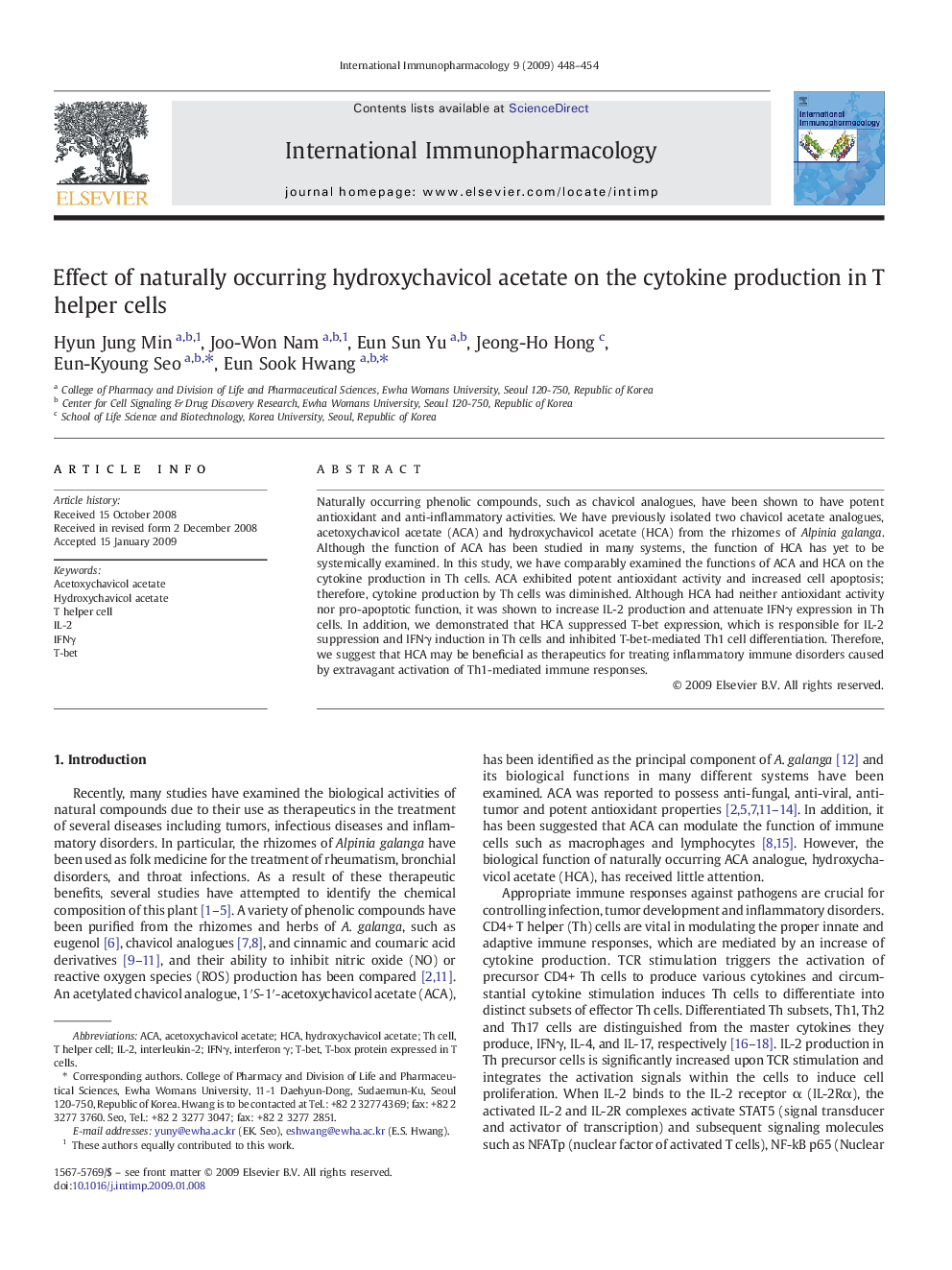| Article ID | Journal | Published Year | Pages | File Type |
|---|---|---|---|---|
| 2541868 | International Immunopharmacology | 2009 | 7 Pages |
Naturally occurring phenolic compounds, such as chavicol analogues, have been shown to have potent antioxidant and anti-inflammatory activities. We have previously isolated two chavicol acetate analogues, acetoxychavicol acetate (ACA) and hydroxychavicol acetate (HCA) from the rhizomes of Alpinia galanga. Although the function of ACA has been studied in many systems, the function of HCA has yet to be systemically examined. In this study, we have comparably examined the functions of ACA and HCA on the cytokine production in Th cells. ACA exhibited potent antioxidant activity and increased cell apoptosis; therefore, cytokine production by Th cells was diminished. Although HCA had neither antioxidant activity nor pro-apoptotic function, it was shown to increase IL-2 production and attenuate IFNγ expression in Th cells. In addition, we demonstrated that HCA suppressed T-bet expression, which is responsible for IL-2 suppression and IFNγ induction in Th cells and inhibited T-bet-mediated Th1 cell differentiation. Therefore, we suggest that HCA may be beneficial as therapeutics for treating inflammatory immune disorders caused by extravagant activation of Th1-mediated immune responses.
